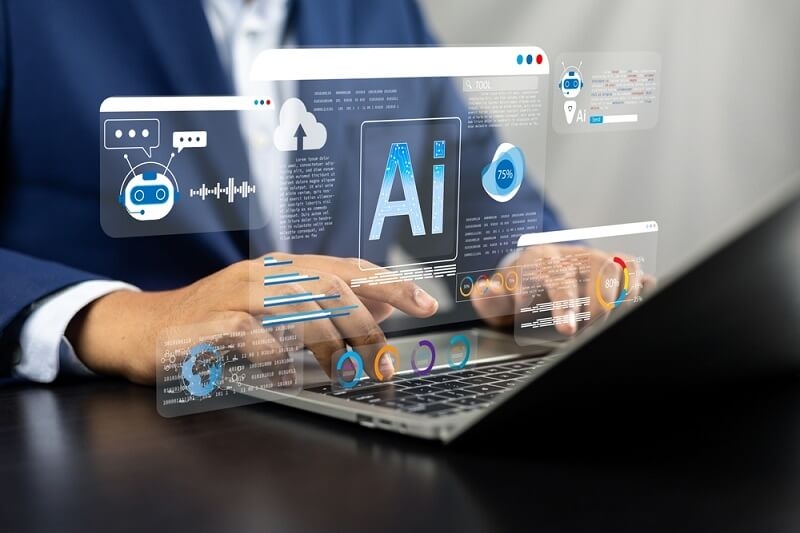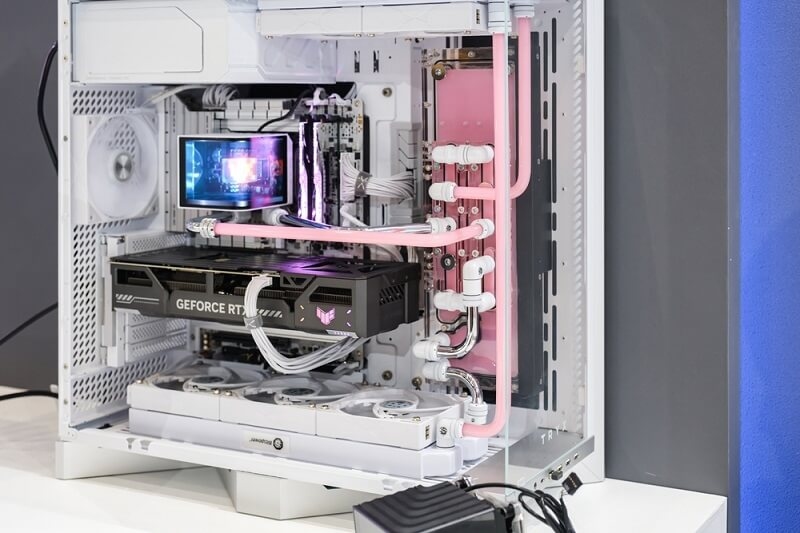
Do you remember when a computer was simply a tool? You would instruct it, and it would complete the task you required; that was the end of it. Well, guess what? All of that is about to change dramatically. The world of personal computing is on the threshold of a monumental change due to the increasing integration of artificial intelligence into the very fabric of machines.
This evolution is often defined as AI in the hardware of a PC. This is more than just wording; it is a complete redesign of how we navigate and rely on our computers for thinking. It is transitioning from a dumb calculator to a cognitive partner.
This really means that your computer is beginning to comprehend your movements and your work through machine learning and intelligent computing principles to anticipate your needs. Once again, this is not simply an advancement of software alone; instead, efficiency is magnified when dedicated physical components partner to enhance your productivity.
Machine learning makes computers act less like tools and more like helpers. It’s what lets your PC predict what file you’ll open next or how much power your CPU should use. The system analyzes your actions and adjusts automatically.
Every click, scroll, or keystroke teaches it something new. Over time, these systems handle background tasks smoothly and respond quickly. Innovative computing, powered by AI, cuts down the time between command and action.
This results in improved battery life, reduced slowdowns, and faster load times. It’s almost like the computer is thinking along with you.
When audiences hear the mention of performance improvements, they think of expensive or flashy components. However, the most substantial improvement actually exists in the background. Hardware optimization through AI involves optimizing the interaction between chips, fans, and sensors to work together efficiently.
This means your computer will learn the most efficient way to cool itself, distribute power, and balance its workload for effective multitasking, without requiring you to intervene.
Here are some examples of this functionality occurring under the covers:
It's quiet; you can't see it, but it is what keeps your computer running smoothly.

Neural chips are like tiny brains inside a PC. They mimic how human neurons process information, which enables them to learn patterns quickly. Instead of waiting for software to tell it what to do, the chip figures out the next move.
These neural chips handle tasks such as
For gamers, this means graphics that look lifelike. For creators, editing and rendering get way faster. For daily users, apps open more smoothly and brightly. Neural chips are pushing PCs to think in ways that feel closer to instinct than instruction.
Traditional processors only follow commands. Next-gen processors can learn from them. AI inside these processors helps them predict how to handle workloads before they even start.
This makes a big difference for multitasking. The chip determines which tasks to prioritize. It can move memory faster, maintain balanced temperatures, and boost power only when needed.
These processors often use built-in machine learning models that adapt to usage over time. The more you use your computer, the better it becomes at understanding how to serve you. What this really means is less lag, longer life, and more consistent speed. It’s not just power—it’s awareness.
You don’t need to be a tech expert to notice AI at work. It’s everywhere inside your computer, even if you never see it.
Here are a few clear examples:
These examples show that AI in PC hardware isn’t a far-off idea. It’s part of the daily experience already happening every time you turn on your screen.
Efficiency isn’t just about saving power anymore. It’s about learning how to use every drop to its best advantage. Innovative computing enables PCs to adjust their own settings. For example, gaming laptops often throttle power depending on performance demand. AI determines the safe maximum heat that can be handled before reducing speed.
Machine learning models even help detect faulty parts or predict failures early. This type of self-awareness in hardware enables systems to run longer and more safely. It’s like your PC knows when it needs rest before it breaks down.
The next wave of computing will be driven by AI integrated directly onto the board. Continue to shrink the size, while getting more intelligent, neural chips will follow. Next-generation processors will likely share data among themselves, without the need for an operating system.
The optimization of hardware will reach a point where PCs could tune themselves automatically without needing updates. Each device may rely on its own learning to evolve and improve.
This change means replacements would be fewer, and performance between generations would be more efficient. AI in PC hardware will soon feel like a special feature, but it will be like the brain of the machine itself.
Speed is just the surface. AI integration offers benefits that impact every aspect of computer use.
Some of these include:
The overall experience becomes personal without needing manual changes.
That’s what makes AI in PC hardware so valuable—it adapts to people, not the other way around.
Nothing’s perfect, and intelligent computing still has hurdles.
These issues will likely ease as designs improve and materials evolve. Still, the journey toward fully intelligent PCs is already moving fast.
Technology always returns to its value for humans. AI in PC hardware will not displace the human user; rather, it is, or will be, there to assist the user. Delegating repetitive, tedious, or complicated tasks to machines enables humans to be more creative, innovative, and idea-based.
It then becomes this collaboration of brain and machine. Let's get real—what that means is a coordinated, seamless, and personalized tech experience where the devices handle the details quietly and the user receives the reward.
This change towards intelligent machines marks a new era of personal computing. AI will enable next-generation processors and neural chips to be built into PC hardware. Computers are being transformed from passive machines that a user commands into active partners in the computing process. These devices will track computing behaviors and optimize hardware to provide more intelligent hardware optimization, as well as a rudimentary form of clever computing.
Leveraging machine learning, this evolution in computing means computers will not only be faster users of computing resources but also more efficient. Still, it will actually be more useful, managing resources intelligently and quietly to improve all that we do.
This content was created by AI